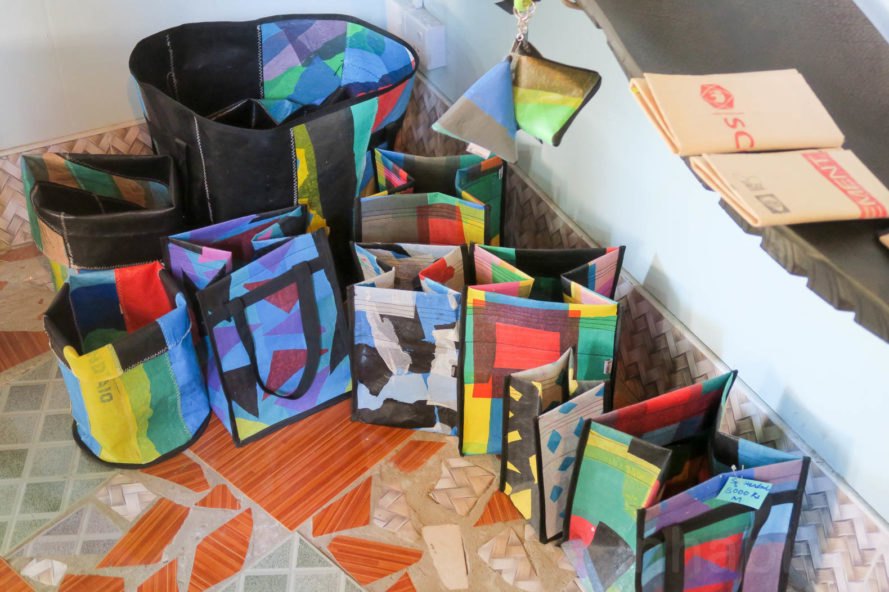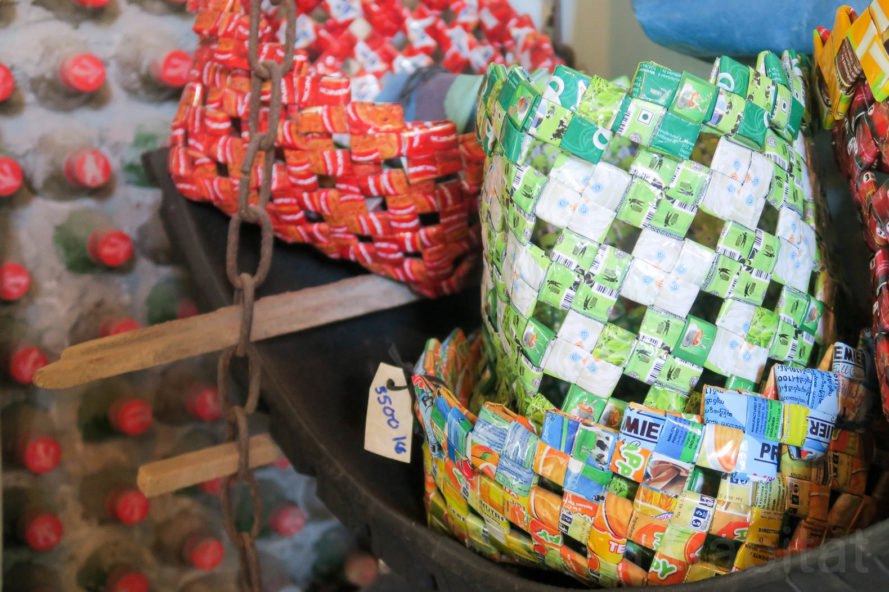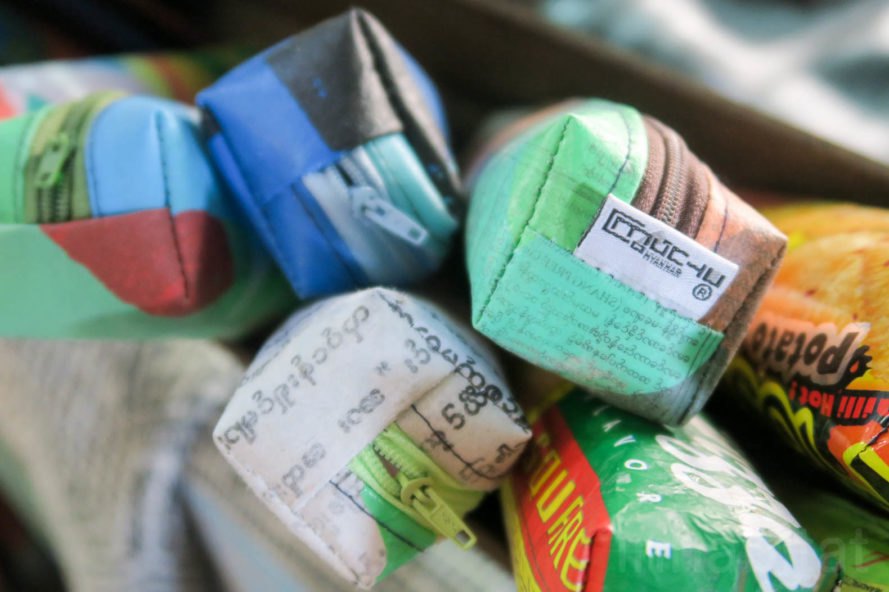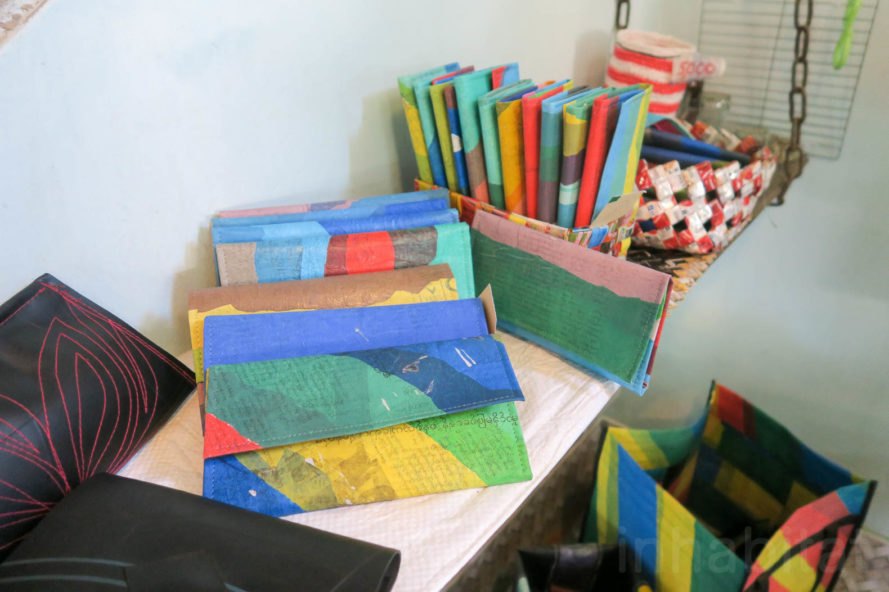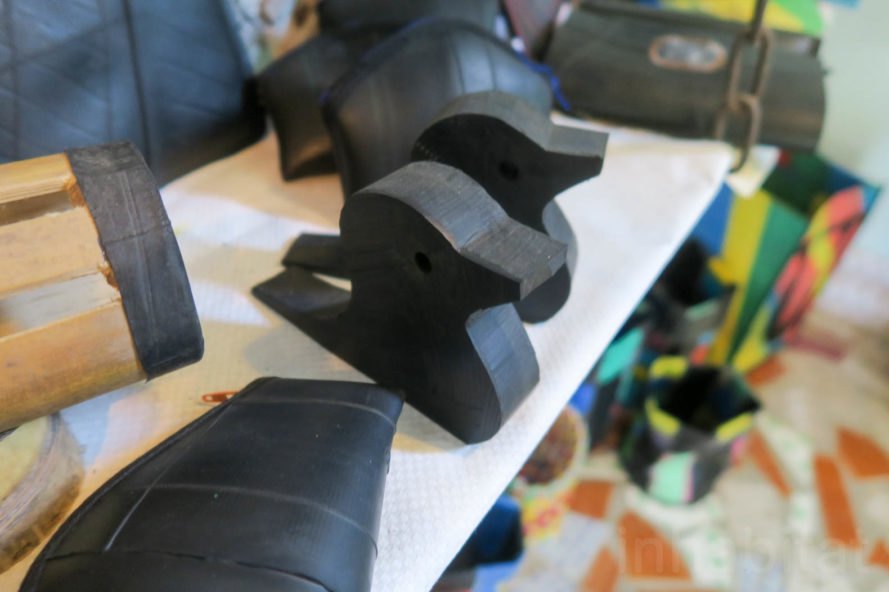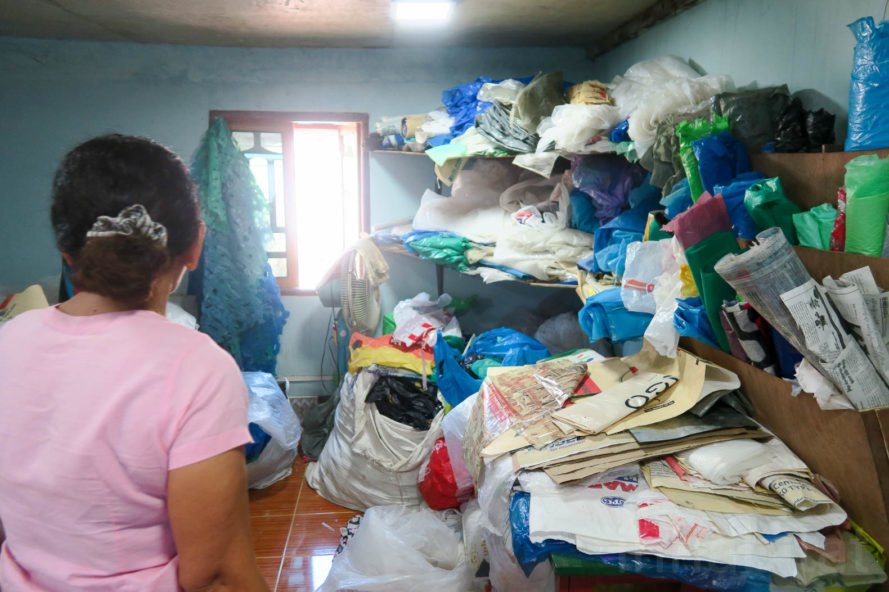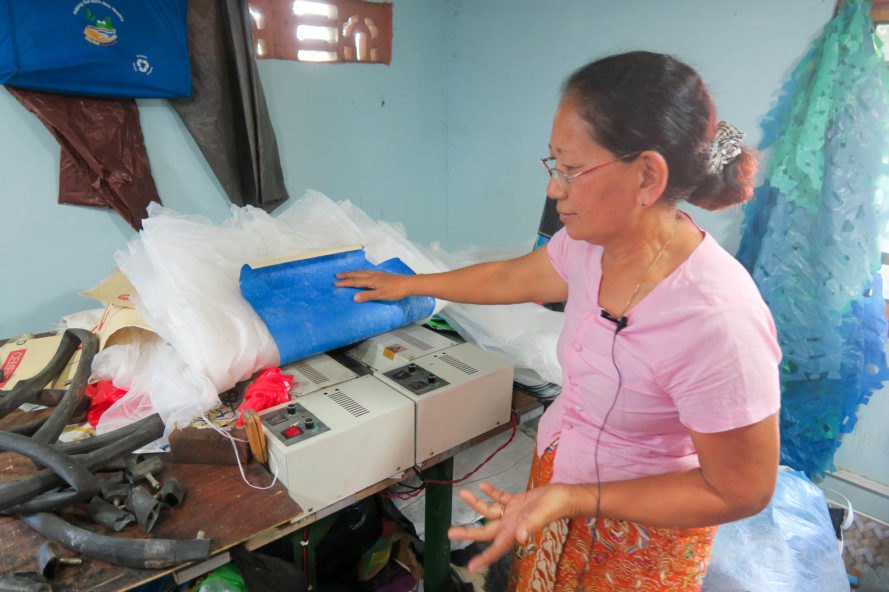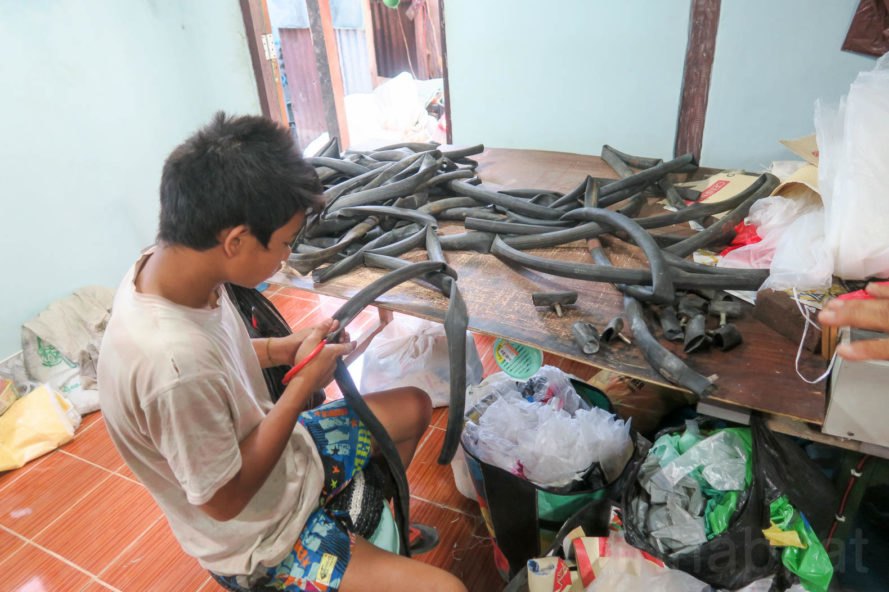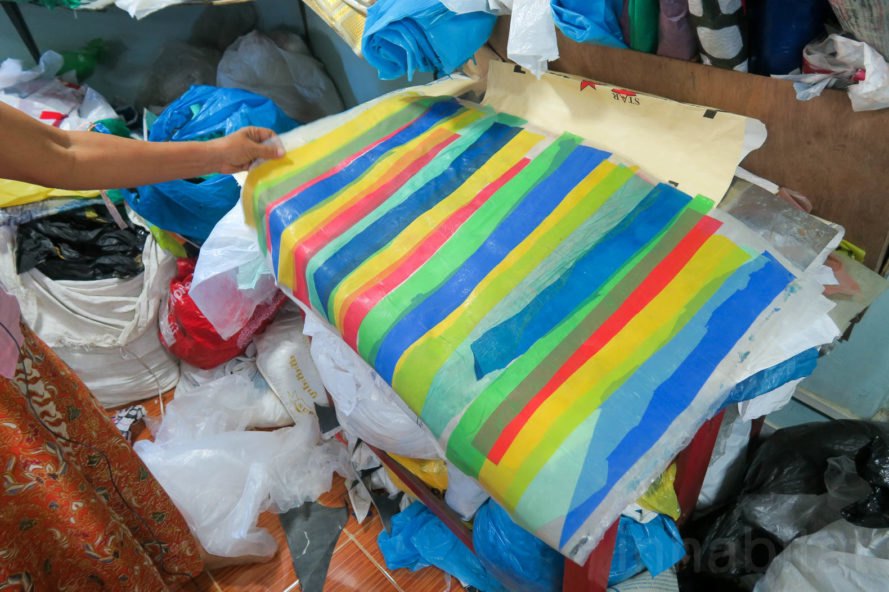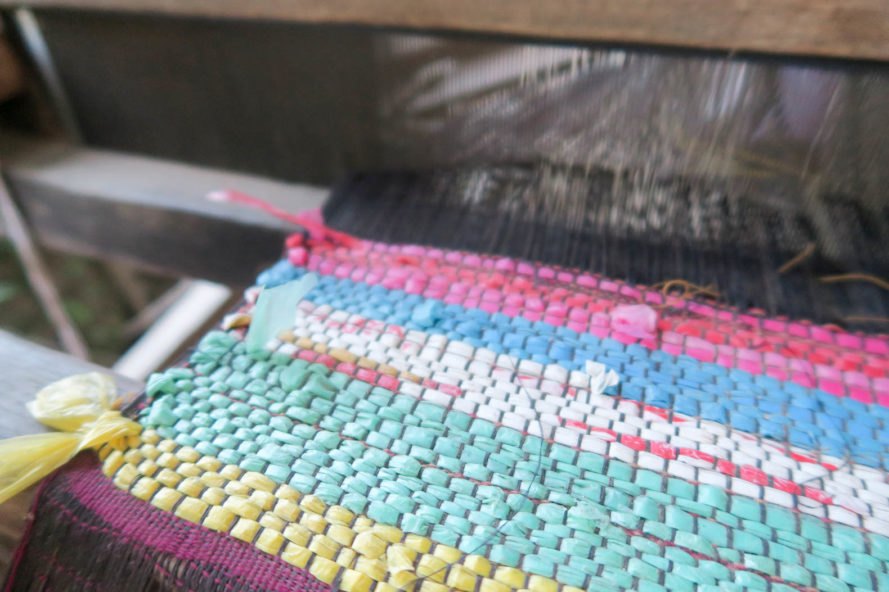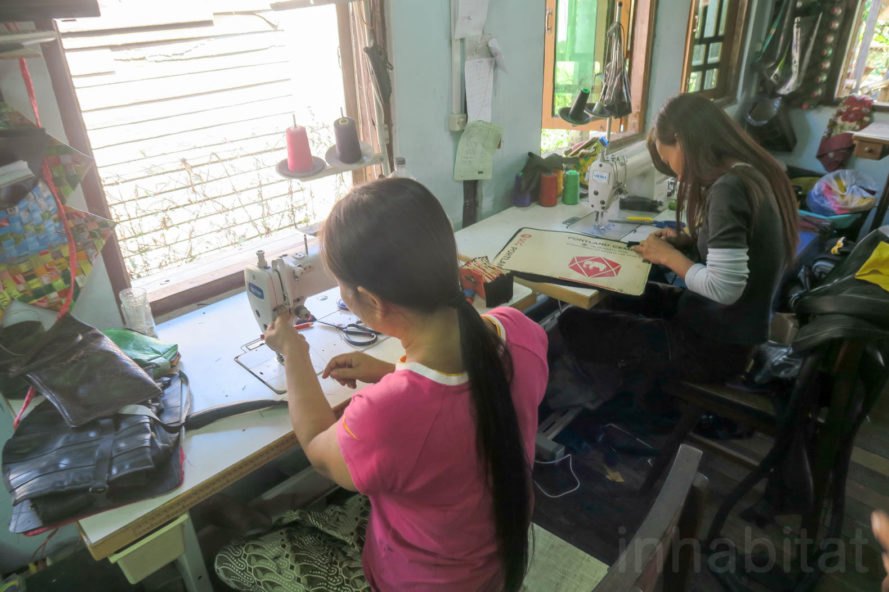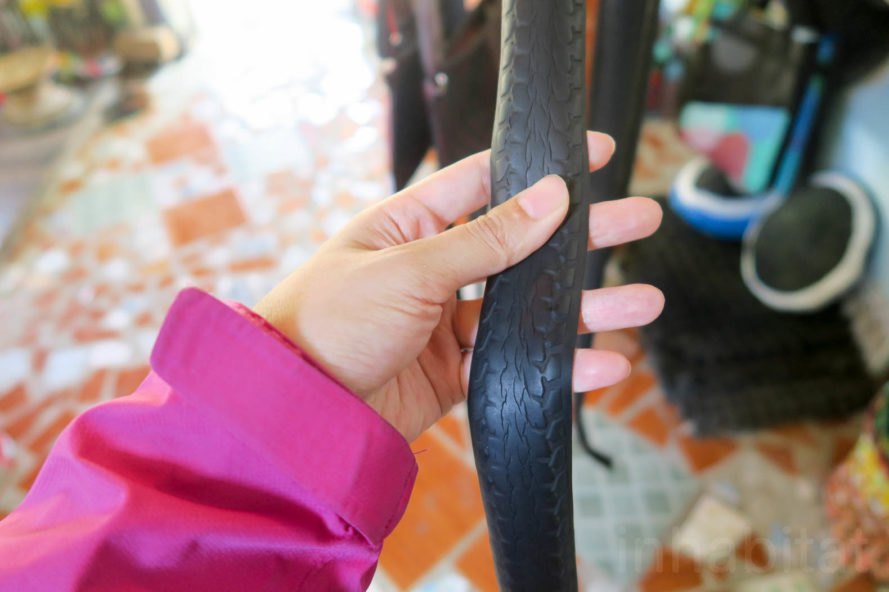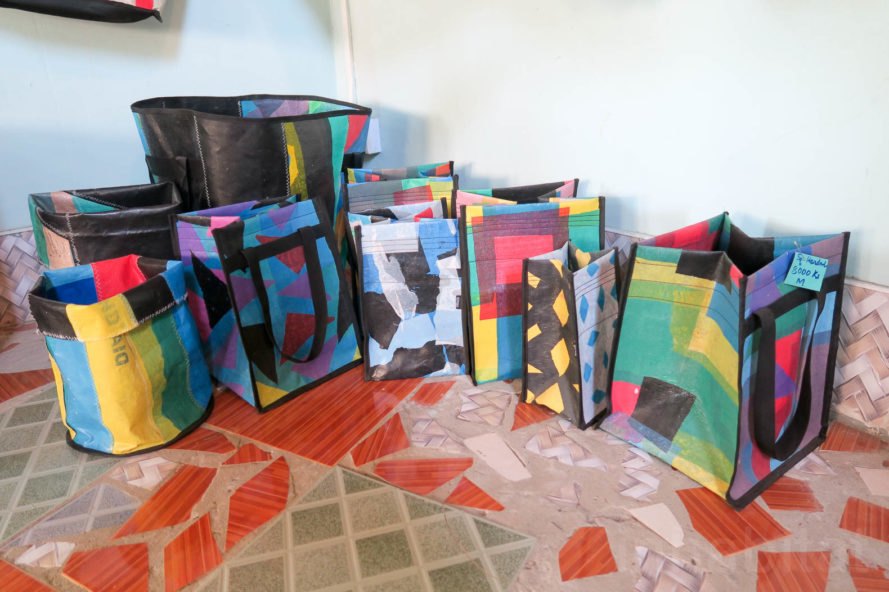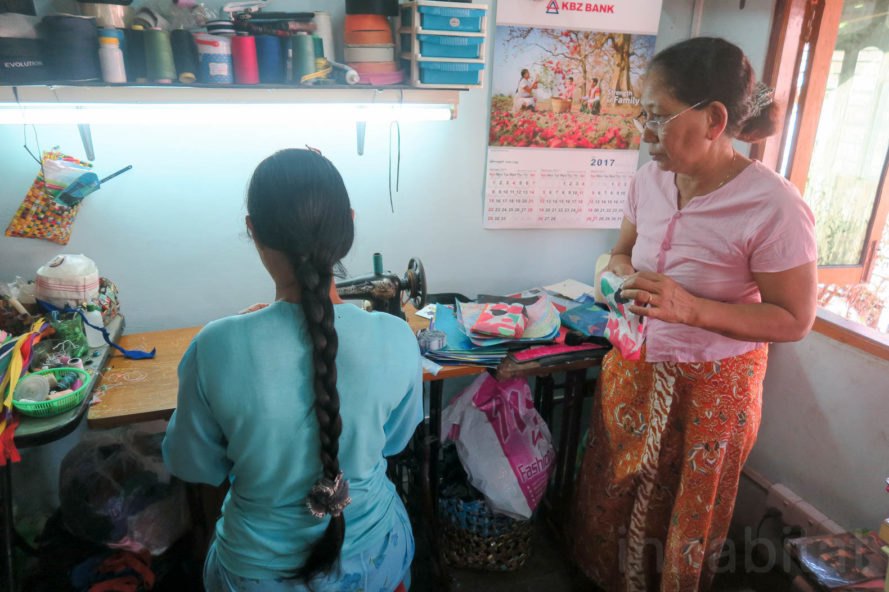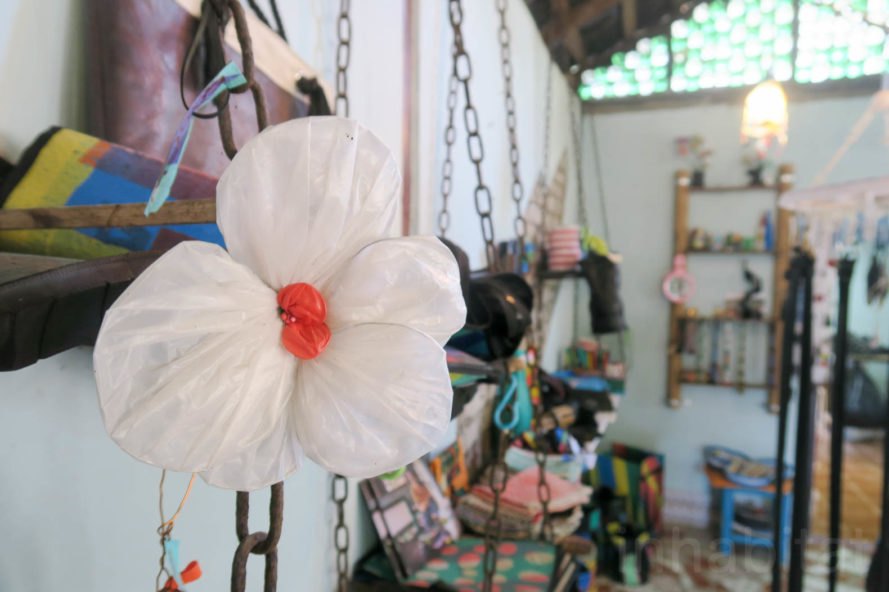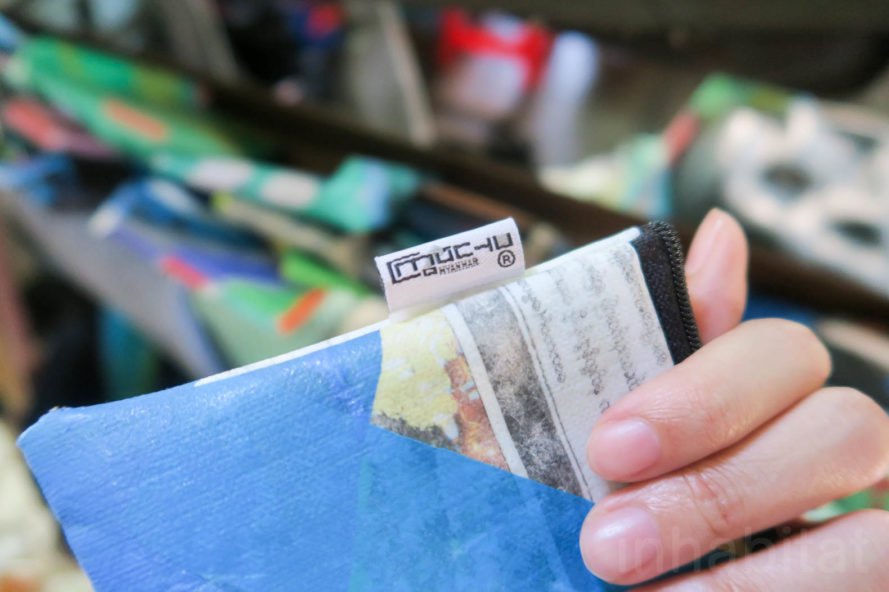Myanmar’s eco-friendly startup transforms trash into treasure—and jobs
Trash is a big problem in Myanmar. Garbage is scattered in the streets with smells of burning trash never far behind—but an innovative social enterprise has found a way to turn that adversity into advantage. Tucked in the rural backwaters of Dala near Yangon city, ChuChu Design is an eco-friendly startup lifting families out of poverty with the art of upcycling. Created by Italian NGO Cesvi, the ChuChu project collects waste and teaches locals to transform trash into recycled crafts with an environmental message.
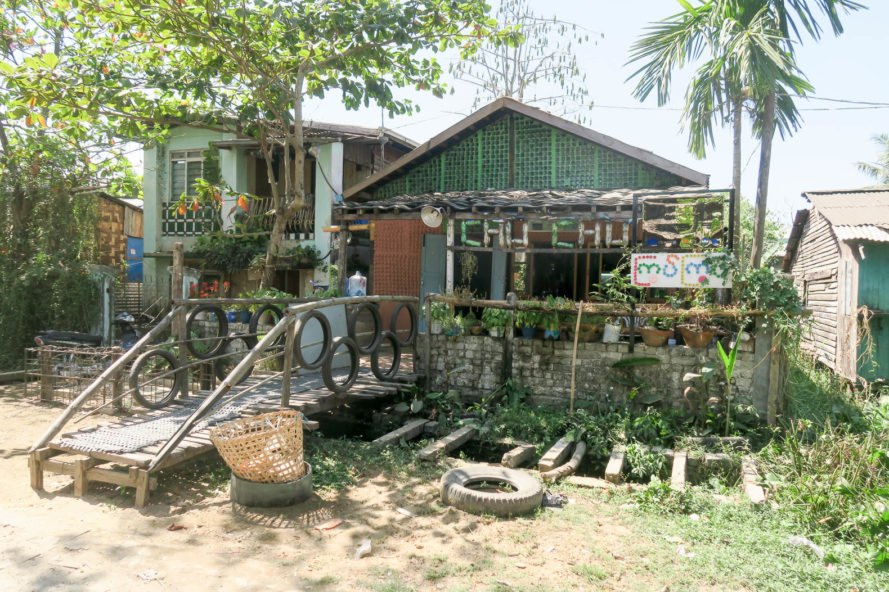
With the opening of Myanmar’s economy, the fast-developing country is seeing a boom in population and consumerism but still lacks much of the infrastructure to support that growth. Absence of waste disposal options in many areas leads citizens to litter or burn their rubbish, creating toxic air pollution. With the lack of education about the environment, public acceptance of recycling and waste reduction practices remains low.
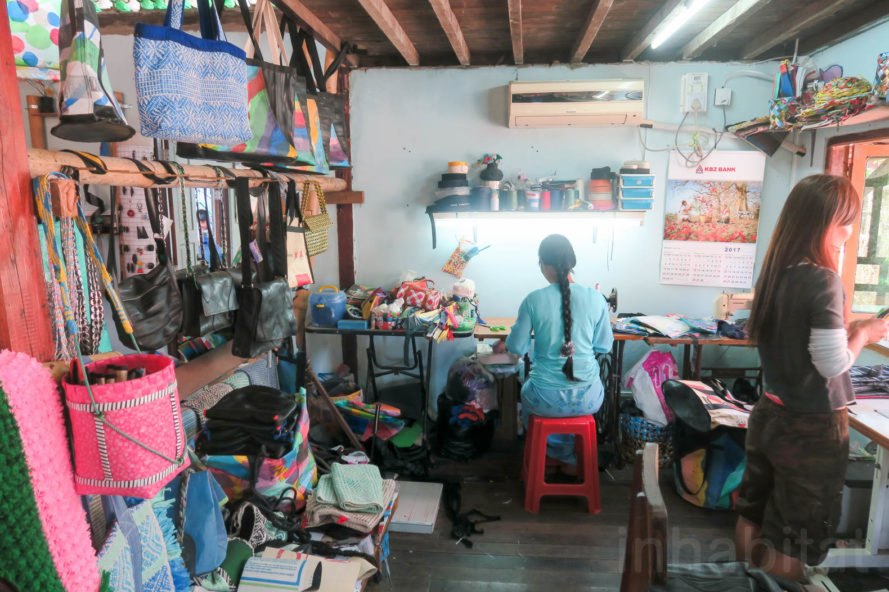
ChuChu Design hopes to change that. Founded in 2014 with funding from the EU, the social enterprise is now a self-sustainable startup that teaches families how to upcycle trash into marketable crafts and currently employs 30 makers. To promote their products and message, managing directors Wendy Neampui and Friedor Jeske designed and built a workshop and showroom made largely of recycled materials. Located in Dala across the river from the country’s bustling commercial capital of Yangon, this trash-made shop shows off the potential of upcycling from its bottle-embedded walls to its beautiful products constructed of recycled materials.
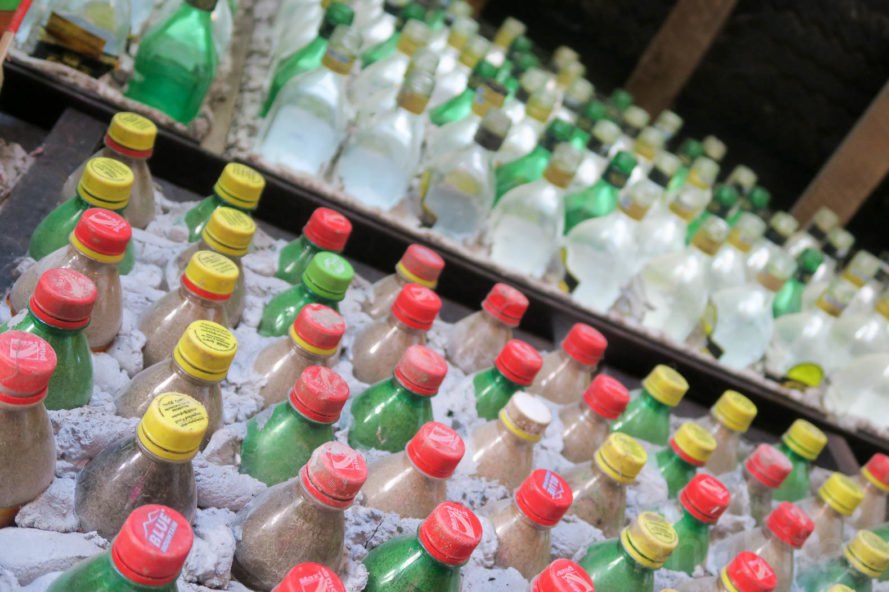
“We want to make job opportunities for those who have low income,” said Wendy Neampui to Inhabitat. “On the other side, we are involved with the environment. Now there are thirty people working here but not all are from Dala. Some are from Mwambi or outside of Yangon.” She gestures to the myriad of products lining the walls, including sturdy purses made of car inner tubes, potato chip bag wallets, belts made from bicycle tires, recycled wine bottle glasses, and even laptop slips woven from cement bags. The waste is usually sourced from a waste collector and downtown wholesale market or from locals hired to collect rubbish from the roadside.
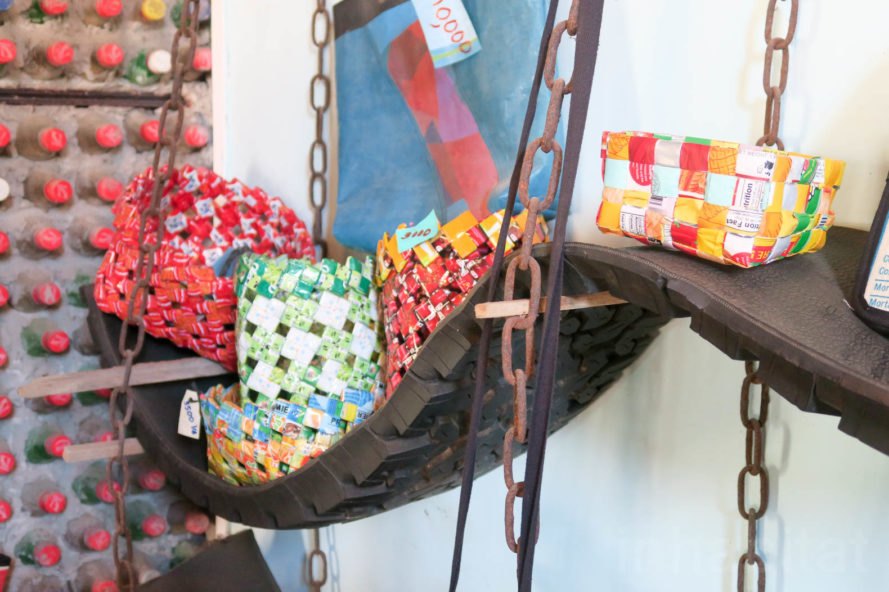
She continues: “We teach them how to make the designs here and then they make the products at home. Twice a week (Thursday and Saturday) we meet together here and they bring all the products they make at home and then we fix the price. The price depends on how long they worked on the product. We sell the products to our regular shops, customers, and weekend bazaar in Yangon.”
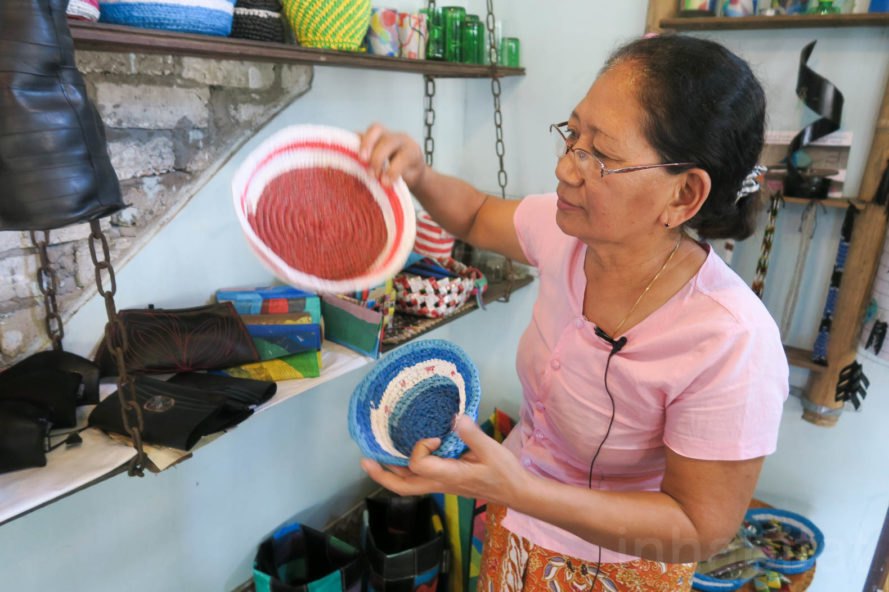
The workshop behind the showroom is filled with raw material, from piles of motorbike inner tubes to enormous plastic bags of all colors. Plastic bags are the most widely used raw material at ChuChu Design and the makers cut shapes out of different colored bags then use a machine to fuse the plastic together into sheets. The colorful patterned sheets are used for purses, pencil cases, laundry baskets and other products without the need for paint. Makers also experiment with new materials they gather from the dump. Wendy is even creating a traditional Burmese dress using a blend of cotton and recycled plastic on a loom.
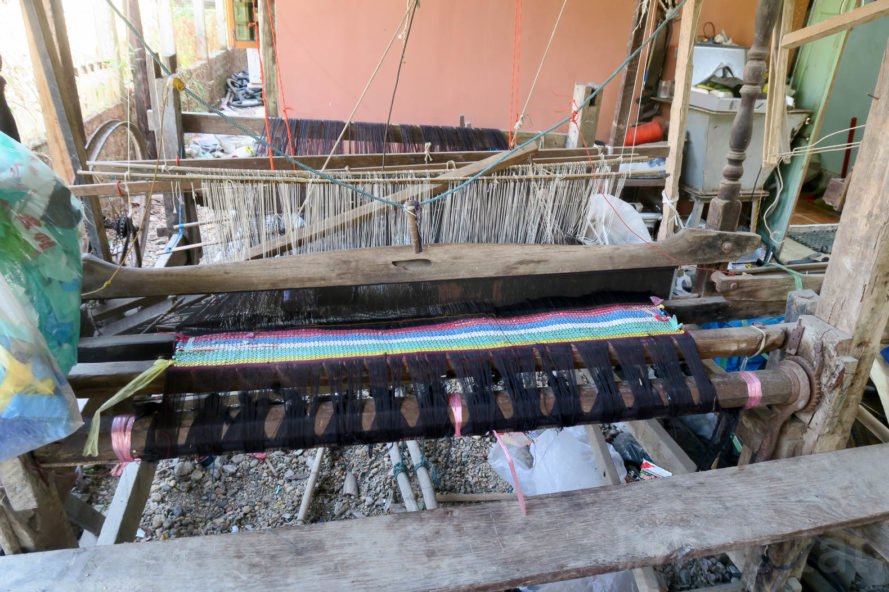
While Wendy does not believe ChuChu Design will dramatically change society, she hopes the project will gradually spread awareness. “Local people never buy these products because they know it is made from trash,” said Wendy, referencing the social stigma around recycled products. “Only foreigners buy. But the locals don’t notice this is our trash. We need a lot of awareness.” ChuChu Design sells its products at its showroom in Dala as well as in the Pomelo shop in Yangon, the weekend Yangon bazaar, and other locations with hopes of expanding to Bagan and Inle Lake and the online marketplace.
ChuChu, Myanmar
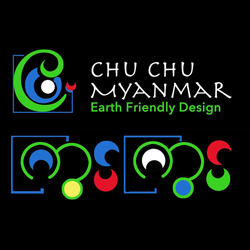
PROFILE
Their aim is to transform waste into beautiful new products. They started as a project funded by the Italian NGO Cesvi. Now they run a self-sustainable social enterprise, supporting 45 people.
Originally called KyutKyut, The company got its name from a Burmese word “Chu Chu”, which means plastic bag. “When you touch a plastic bag, the sound it makes is like ‘chu chu’. So that’s how we came up with the name,” Wendy explained. Founded 1 April 2014
They transform used umbrellas, plastic bags, paper, cement bags, tires, tubes and wrappers into beautiful, unique bags, gifts, containers and clothing accessories.
ChuChu provides training in product design using recycled materials, and can customize course content based on the individual or group. They offer professional consultant work regarding the set up of general solid waste management systems.

